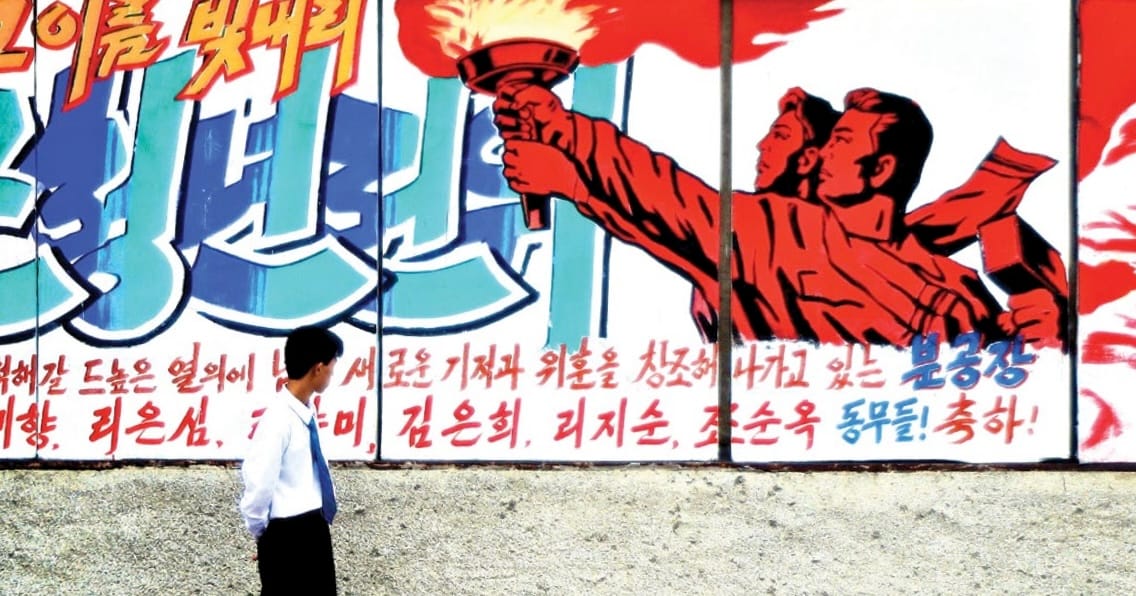Resisting Oppression: Focusing on information needs
The traditional approach to fighting censorship can be an exhausting technical game. By focusing on a needs-first approach, Patrick Boehler discusses how the fight against censorship and oppression must provide information essential for daily life.

By Patrick Boehler
As a journalist, I’ve learnt about censorship resistance through failure. Years of working with international broadcasters have taught me that the news media excels at reaching people but fails at helping them. We measure success in audience numbers while communities struggle with immediate, solvable problems. Our content flew past censors and into irrelevance.
I worry we’ve created way too many unnecessary martyrs of journalism because we’ve never sufficiently questioned the premise of a lot of this work. I myself have asked and agonised over how to defeat censorship, assuming the relevance of everything my peers and I were producing. I should have been asking how to serve people’s actual information needs.
Parents trying to find safe milk formula for their baby won’t look up, and probably don’t need, our investigative exposé on who’s up-and-coming in politics or what was said at the last government press conference. What they need to know is which stores stock good, reliable products, which hospitals will treat their child without bribes, and which officials actually respond to complaints. This sort of mundane, actionable information threatens authoritarian control more deeply than any dissident broadcast.
The traditional approach to fighting censorship is an exhausting technical game. When governments block websites, we create mirrors. When they shut down platforms, we migrate our content. When they monitor communications, we adopt encryption. Meanwhile, the information and content we’re protecting often serves our conception of importance more than actual community needs.
I've watched newsrooms invest millions in circumvention technology even as their audiences turn to WhatsApp groups for information that actually matters to them: which hospitals have vaccine stock, which neighbourhoods face demolition, which schools accept children without local registration. These informal networks lack sophisticated encryption but they solve real problems.
Across autocracies — and there’s more and more of them around the world — communities already demonstrate this principle. They share real-time data about which employers actually pay wages, which local officials can be trusted, which schools accept migrant children. This information spreads through trusted networks, verified through lived experience rather than institutional authority, because they’re actually important and necessary to people’s lives.
Now we face AI systems that perfect authoritarian information control. When someone asks about rising food prices, AI chatbots provide soothing explanations about global supply chains while omitting local corruption. When people inquire about protests, they’re given “historical context” about the importance of stability. The censorship is becoming conversational, personalised, invisible.
These systems excel at providing general information while systematically obscuring actionable details. They’ll provide comprehensive explanations about labour law but can’t tell you about the reputation, work ethic and interpersonal manners of lawyers who take on such cases. They’ll discuss the importance of environmental protection while avoiding mention of specific local sources of pollution.
A needs-first approach reveals how censorship actually works. Authoritarian systems don’t just block information — they create environments where people can’t act on what they know. It’s not enough to understand your rights; you also need to know which lawyers will be able to help you assert them. Documenting pollution only matters if you know who will actually investigate.
Communities navigating these restrictions become laboratories for information efficiency. They teach us that relevance trumps reach, that trust grows through service, and that the most powerful networks emerge from shared needs rather than shared ideology. When we start with community needs, unexpected allies emerge. The grandmother sharing pension information doesn't see herself as a resistance fighter. The parent documenting school corruption doesn't identify as an activist. Yet their actions, multiplied across neighbourhoods, create information flows that autocrats struggle to control. It's harder to criminalise sharing hospital ratings than organising protests.
Networks built on meeting real needs create their own momentum. People invest time and risk in systems that demonstrably improve their lives. Communities that successfully share medicine prices develop verification habits. Families trading school information build secure communication practices in the face of efforts to stop or threaten them. The infrastructure for sensitive information grows from mundane utility.
This approach also changes how we think about sustainability. We don't need to fund grand institutions that become hollow vessels for whoever controls the next funding cycle. Small networks solving immediate problems resist capture better than any bureau or initiative.
As AI systems become primary information interfaces, this community-based approach becomes essential for preserving truth. When every parent in a district knows through direct experience which schools accept migrant children, no algorithm can maintain convenient fictions. Lived experience shared through trusted networks defeats even sophisticated computational propaganda.
The path forward starts with inverting our assumptions. Begin with needs, not messages. Build networks that solve problems, not platforms that broadcast positions. The most subversive act might be helping people find good schools. The most revolutionary technology might be accurately tracking which hospitals have clean blood supplies.
Providing information so essential to daily life that restricting it becomes impossible — that's how communities protect truth in an age of algorithmic mediation. Not through technical cleverness or institutional grandeur but through the simple act of neighbours helping each other navigate the world as it actually is.
Patrick Boehler is based in Brooklyn and leads Gazzetta, a media research lab helping newsrooms serve communities in restrictive environments. After years as a reporter and editor in international journalism, he now focuses on making media genuinely useful rather than merely accessible.
Join one of the following groups and we'll keep you in the loop, including sending you a copy of the digital version of the first issue of Balance.
Join Signal Group | Join Whatsapp Group | Join Telegram Group




